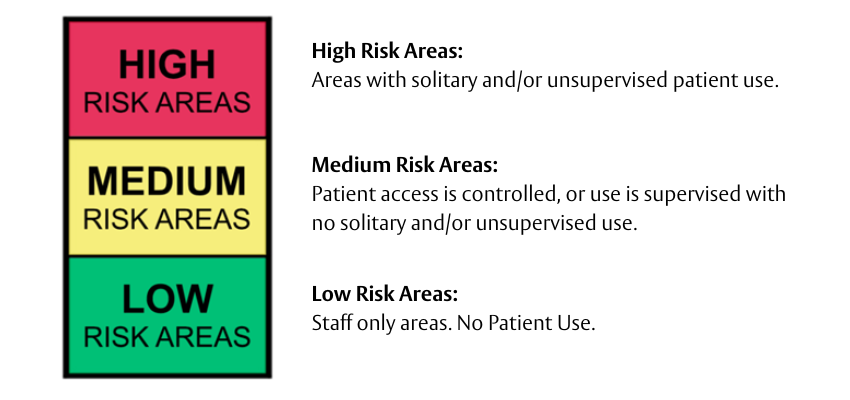What Makes a Product Suitable for Behavioral Health Facilities?
Choosing hardware for behavioral health spaces comes down to maximizing safety and security and minimizing opportunities for harm.

According to a recent article published by Deloitte, at least 1 in 4 people experience significant behavioral illness at some point in life. Astoundingly, the direct and indirect costs of behavioral illness are estimated to exceed the burden of cancer, diabetes, and respiratory disease combined.
And, according to Modern Healthcare’s 2022 Construction and Design Survey, more than 70% of the construction and design firms surveyed said they are seeing increased demand for a behavioral healthcare component in their medical projects.
Guidelines for hardware designed to reduce risk of self harm
But how can architects and project managers be confident they are specifying and installing hardware products that will reduce the risk of patients harming themselves while under supervised care?
Many architects and contractors rely on the New York State Office of Mental Health’s (NYS-OMH) guidelines for new construction and major renovation projects – entitled Patient Safety Standards, Materials and Systems Guidelines. It provides a selection of materials, fixtures and hardware that the NYS-OMH has reviewed and supports for use within inpatient psychiatric units to reduce the risk of harm to individuals in inpatient settings where patients are considered at high risk for suicide.

NYS-OMH evaluates products using two categories of criteria:
Primary criteria:
· Ligature resistance: Looping
· Ligature resistance: Wedging
· Cutting
· Jumping
· Tamper resistance
· Weaponization
· Contraband storage
· PICA/Ingestion (a mental health condition in which a person compulsively swallows non-food items)
Secondary Criteria
· Ligature resistance by combining a ligature with other readily available objects
· Ligature resistance that is the result of the configuration in which a product is installed
· Codes & Regulations
· Therapeutic Environment & Appearance
· Constructability
· Durability
· Maintenance
Examples of Products Designed for Behavioral Health Spaces
Our engineers and product managers are focused on designing products that not only secure all types of healthcare spaces, but also minimize opportunities for self-harm, to meet the unique demands of behavioral health facilities.
For example, we offer cylindrical and mortise locks designed for use in high-risk spaces that integrate the lever into the escutcheon, which effectively minimizes the potential for ligature points.
These cylindrical and mortise locks exceed ANSI/BHMA Grade 1 requirements to withstand abusive environments. In fact, they have surpassed several very challenging tests for strength and durability.
The integrated design of these locks not only provides easy access for staff and patients, but also increases the safety and security of individuals in behavioral health spaces.
We even offer overhead concealed closers for medium and low risk areas that are designed to resist abuse and misuse by patients because the arm, track and closer are completely concealed when the door is closed.
{behavioral_health}
Rely on Our Support Team
Our professional services team can guide you in specifying the appropriate door hardware products for your behavioral health facility – enabling you to customize each opening according to your expectations for patient and staff safety, access and security.
Rely on us for:
· Architectural and specification consulting
· Building Information Modeling (BIM)
· Site surveys and one-on-one consultations
· Support for local, national and third-party sustainability codes and standards
Fill out the form below to get in touch with our team.